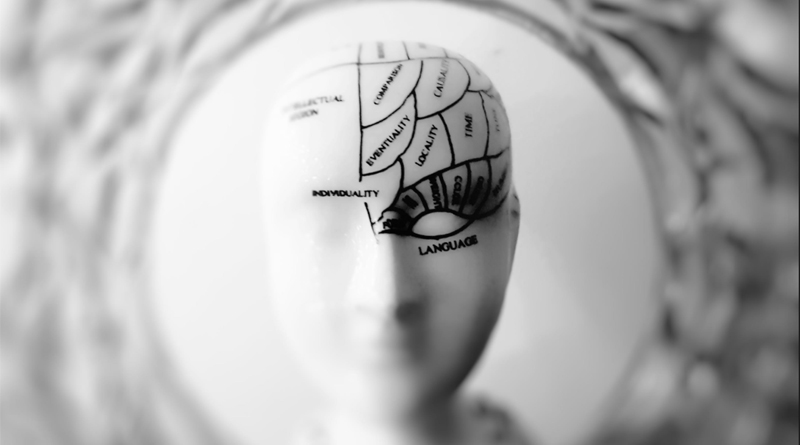TIPS TO KEEP DEMENTIA AT BAY
Dementia is the term given to progressive, accelerated ageing of the brain, which has become a global pandemic. It is now so widespread that seven in 10 people over the age of 85 and 95% over the age of 90 will experience some form of dementia (Alzheimer’s Association, 2014), such as Alzheimer’s, Huntington’s, Parkinson’s, or one of the many other variations.
Those with dementia gradually lose their memory and their ability to perform everyday tasks, which results in a loss of independence, dignity, and time. I’ve seen my grandmother go through dementia, so I know how incredibly sad it is to see loved ones lose their precious memories, vibrancy and abilities to recognise even their family.
Although there is no cure for dementia, we can mitigate cognitive decline and the risk of developing dementia – all it takes is a bit of brain exercise.
Essentially, the aim is to release glutamate, a key brain transmitter associated with learning and memory that’s released when we learn new and novel information. Glutamate plays a critical role in cognition and in forming and maintaining memories, so triggering its release helps keep your brain in shape.
All we have to do to facilitate this neurological marvel is to be proactive and try new things. Here are a few of the most effective:
Learn a new language
Learning another native tongue forces you to think in a completely new way and has been shown to improve memory, attention span and, significantly, reduce the risk of age-related cognitive decline.
A 2012 paper published in Cerebrum states that those who can speak more than one language “can have better attention and task-switching capacities” than those who do not. This is “thanks to its developed ability to inhibit one language while using another.”
 It also highlights that “bilingual seniors can experience less cognitive decline.”
It also highlights that “bilingual seniors can experience less cognitive decline.”
The Eton Institute also highlighted fascinating research from Toronto’s York University, which found that bilinguals “may have a resistance to the onset of dementia, being diagnosed, on average, 4.5 years later” than aging peers who speak just one language.
The institute says that this may be due to increased white matter – the area of the brain which connects and carries signals between different regions – in the prefrontal cortex.
 Learn a new instrument
Learn a new instrument
A 2015 paper published in Psychology details studies which show how playing an instrument “can have positive effects on motor, emotional, and cognitive deficits observed in patients with non-communicable diseases such as stroke or Parkinson Disease”.
Several studies have shown that learning a musical instrument helps to improve memory and mental processing abilities. The Guardian referenced multiple studies which demonstrate that learning a musical instrument increases the capacity and strengthens the long-range connections between various regions of the brain.
It also referenced research which showed that “musical training also enhances verbal memory, spatial reasoning, and literacy skills, such that professional musicians usually outperform non-musicians on these abilities.”
Enjoy some brain games
Challenging brain games are a hugely effective way to increase the production of glutamate, and in-turn mitigate dementia and memory loss.
When it comes to choosing brain games, mastering your local newspaper’s crossword or working your way through a book of sudoku won’t cut it. To work effectively, you’ll need to choose a variety of different brain games that work the brain’s different cognitive functions.
 For example, choose games that test memory, attention and concentration, processing speed, executive function, mood and psychological, and/or speech and language. Some games will focus on just one area, others will cover a number – the key is to ensure that overall all these areas are ‘exercised’ or ‘trained’ through the games you play.
For example, choose games that test memory, attention and concentration, processing speed, executive function, mood and psychological, and/or speech and language. Some games will focus on just one area, others will cover a number – the key is to ensure that overall all these areas are ‘exercised’ or ‘trained’ through the games you play.
During my neuropsychological studies at the Boston University School of Medicine and Harvard University, I conducted a randomized clinical trial between 2004 and 2007 into the effects of cognitive intervention – essentially brain exercises – on mitigating and helping to prevent or delay the onset of dementia.
The results showed that brain games were so effective in staving off dementia that it inspired me to create Brain U, a program specifically designed to delay the onset of dementia with more than 20,000 cognitive exercises.
This collection flexes the five main cognitive functions of the brain: processing speed, executive function, speech and language, memory, and attention and concentration.
Another study published in JAMA Psychiatry which involved more than 15,000 older, dementia-free Chinese adults also suggested that taking part in intellectual activities, such as reading books, newspapers or magazines, and playing board games during later life “was associated with a lower risk of dementia”.
Similarly, The Telegraph reported a Cambridge University study which “found that video games improved the brain function of those with early memory problems which can be a precursor to Alzheimer’s disease”.
The results showed that players improved their “episodic” memory – the collection of past personal experiences – by about 40 per cent.
So, it really is worth taking the time to enjoy some intellectually-stimulating brain games and taking your fun seriously!
Look after your physical health
 Your brain and body are deeply connected, so keeping your body healthy, particularly your heart, is crucial to keeping your brain healthy. As such, it’s important to do what we all already know, yet often ignore – get enough exercise, don’t smoke, eat a healthy diet, get enough decent sleep, and keep stress levels low.
Your brain and body are deeply connected, so keeping your body healthy, particularly your heart, is crucial to keeping your brain healthy. As such, it’s important to do what we all already know, yet often ignore – get enough exercise, don’t smoke, eat a healthy diet, get enough decent sleep, and keep stress levels low.
A 2013 study published in Epidemiology found that sticking to the broadly healthy Mediterranean diet is associated with a lower risk of developing Alzheimer’s.
Rest is so important that sleep disturbances have been linked to the onset of Alzheimer’s and other neurodegenerative diseases, according to a study in Nature. Similarly, a 2014 study published in Neurology shows that poor sleep quality in those in their 60’s is associated with widespread increased brain shrinkage.
Quite crucially, the Dana Foundation cites numerous studies that show how people who do something in life that gives them a sense of purpose can protect the brain against dementia.
Therefore, keeping dementia at bay can be as simple as doing the things you know make you happy, and incorporating some of the science-backed methods which keep your mind healthy into your life.
Luckily, rather than being a chore, most of these activities tend to be enjoyable and accessible. So, I expect you’ll get plenty of fun and fulfilment out of flexing the body’s most important muscle!
ABOUT THE AUTHOR
Dr. John DenBoer is the founder of SMART Brain Aging, a healthcare technology company delivering the world’s first science-backed online cognitive training program, Brain U Online.
smartbrainaging.com/
Citations
2012 paper published in Cerebrum, The Cognitive Benefits of Being Bilingual: ncbi.nlm.nih.gov/pmc/articles/PMC3583091/
The Eton Institute also highlighted fascinating research from Toronto’s York University: etoninstitute.com/blog/language-learning-keeps-brain-healthy
A 2015 paper published in Psychology: ncbi.nlm.nih.gov/pmc/articles/PMC4411999/
The Guardian referenced multiple studies which demonstrate that learning a musical instrument: theguardian.com/education/2016/oct/24/want-to-train-your-brain-forget-apps-learn-a-musical-instrument
A study published in JAMA psychiatry involved more than 15,000 older Chinese adults:
jamanetwork.com/journals/jamapsychiatry/article-abstract/2681169
The Telegraph reported a Cambridge University study:
telegraph.co.uk/science/2017/07/02/brain-training-games-boost-memory-may-reduce-risk-dementia-research/
A 2013 study published in Epidemiology found that sticking to the broadly healthy Mediterranean diet can help to reduce the chances of developing Alzheimer’s: ncbi.nlm.nih.gov/pubmed/23680940
Rest is so important that sleep disturbances have been linked to the onset Alzheimer’s and other neurodegenerative diseases, according to a study in the Nature science journal: nature.com/collections/lstqqkctwv
A 2014 study published in Neurology shows that poor sleep quality in people over 60 is associated with widespread increased brain shrinkage: n.neurology.org/content/83/11/967
The Dana Foundation cites numerous studies that show how people who do something in life that gives them a sense of purpose can protect the brain against dementia: dana.org/News/A_Purposeful_Life_is_a_Healthier_Life/

